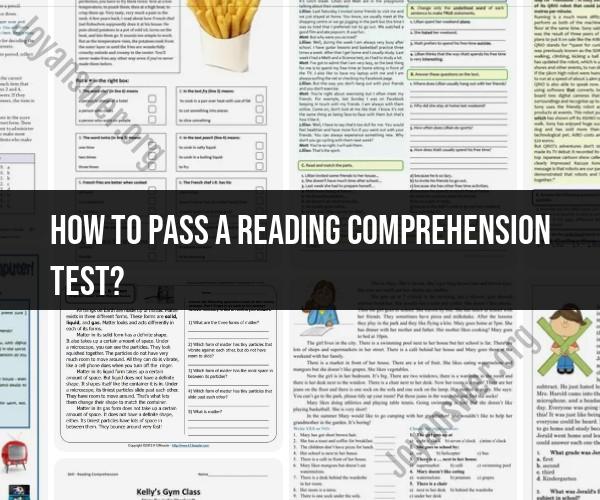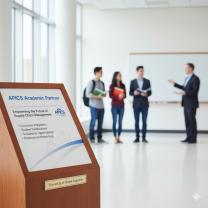How to pass a reading comprehension test?
Mastering reading comprehension tests requires a combination of effective strategies and consistent practice. Here are some strategies and tips to help you excel in reading comprehension:
Preview the Passage: Before diving into the questions, take a quick glance at the passage's headings, subheadings, and any accompanying visuals. This can give you a general idea of the content and structure.
Read Actively: Engage with the text actively by highlighting or underlining key points, main ideas, and supporting details. This helps you focus and retain important information.
Annotate: Write brief notes or comments in the margins as you read. Summarize paragraphs, highlight unfamiliar words, and jot down your thoughts. This can aid in comprehension and serve as a reference for answering questions.
Understand the Question Types: Familiarize yourself with the types of questions typically asked, such as main idea, inference, detail, tone, and author's purpose. Understand what each question is asking for before reading the answer choices.
Read the Questions Carefully: Pay close attention to the wording of the questions. Even slight changes in wording can alter the question's focus and correct answer.
Refer Back to the Passage: When answering questions, go back to the passage to find evidence and specific details that support your answer. Avoid relying solely on memory.
Prioritize Your Time: If the test is timed, allocate your time wisely. Spend more time on passages you find challenging and move through easier passages more quickly.
Identify Main Ideas: Focus on understanding the main ideas of each paragraph and the overall passage. This helps you grasp the structure and flow of the content.
Spot Keywords: Look for keywords or phrases in both the questions and the passage. These can guide you to the relevant parts of the text.
Eliminate Wrong Answers: In multiple-choice questions, eliminate answer choices that are clearly incorrect. This increases your chances of selecting the correct answer.
Watch Out for Traps: Be cautious of answer choices that are too extreme, use absolutes like "always" or "never," or twist the meaning of the passage.
Practice Regularly: Regular practice with a variety of passages and question types is essential. This helps you develop your reading speed, comprehension, and question-solving skills.
Vocabulary Matters: Strong vocabulary skills contribute to better comprehension. If you encounter unfamiliar words, try to infer their meanings from the context.
Stay Calm and Confident: Test anxiety can hinder performance. Practice relaxation techniques, like deep breathing, to stay calm and focused during the test.
Review Your Mistakes: After completing practice tests or actual exams, review the questions you got wrong. Understand why you missed them and learn from your errors.
Simulate Test Conditions: When practicing, simulate the actual test conditions as closely as possible. This includes timing yourself and focusing on improving your performance under pressure.
Remember that improvement takes time and consistent effort. Gradually implementing these strategies will help you become more proficient at tackling reading comprehension tests.













